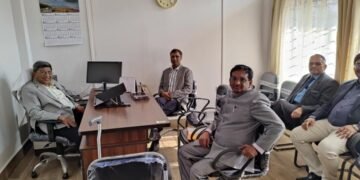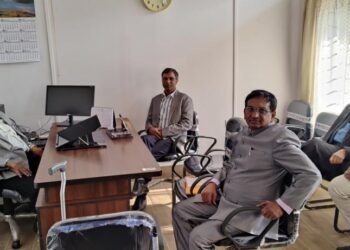The Government of India had approved new contraceptive methods for service provision at government health facilities to increase choices available to women in the community. This includes non-hormonal contraceptive pills called Centchroman. It is an oral contraceptive pill that does not contain any hormone. It is available in the market in some places as a “Saheli” tablet. However, in the public health facilities, it is available under the brand name of “Chhaya” to benefit more women, free of cost. The non-hormonal contraceptive comes in a strip of eight tablets, which need to be taken only twice a week for the first three months and once a week from the fourth month onwards.
Who can use Centchroman (Chhaya)?
Ø Centchroman (Chhaya) can be safely used by all women once it is confirmed that they are not pregnant.
Ø Can be used by women of any age, including those who are unmarried or who do not have children.
Ø Women who had side effects with Mala-N/Mala-D can also opt for this method.
Ø It can be used by postpartum women who are breastfeeding as soon as they feel comfortable after delivery but before four weeks. Centchroman does not affect the quantity, quality and composition of breast milk.
What are the benefits of Centchroman (Chhaya)?
Ø Chhaya causes less bleeding during the monthly period, and also makes the interval between two menstrual cycles longer. This is beneficial for anaemic women.
Ø Can be adopted as postpartum (earlier than four weeks of delivery) or post-abortion contraception (within seven days of completion of abortion).
Ø It does not impact the quality or quantity of milk.
Ø A woman can become pregnant immediately after discontinuing the method.
Ø Women who are not recommended to use hormonal methods can use this method.
Ø No interference with sexual intercourse/pleasure.
Limitations
It does not protect from HIV and RTI/STI. Every client should be screened by a trained provider before starting Centchroman, just like other oral pills.
Where can women get Centchroman (Chhaya) and how should it be taken?
It is available in all public health facilities. It would also be a part of your ASHA kit, so you may distribute to the clients using it. However, the first dose can be provided only after proper screening at a health facility by a trained provider (doctor, CHO, SN, LHV, ANM).
Schedule: Centchroman (Chhaya) is to be taken twice a week for the first three months and once a week from the fourth month onwards.
To begin the use of Chhaya, the woman is advised to take the first pill on the first day of the period (which is the first day of bleeding) and the second pill three days later (on the fourth day of bleeding). This pattern of days is repeated through the first three months. Starting from the fourth month, the pill is to be taken once a week on the first pill day and should be continued on the weekly schedule regardless of her menstrual cycle.
What should be suggested to clients in case of ‘missed pills’?
You should tell the woman that if she forgets to take the pill, she should take the missed pill as soon as she remembers that it has been missed. If she misses taking the tablet by 1-2 days (less than seven days), she should take the missed pill as soon as she remembers and continue the normal schedule. In addition, she should use a backup method like a condom till next periods, just to ensure complete protection.
If she forgets to take pills for more than seven days, then the current pack should be discarded, condoms should be used till she has her monthly bleeding and then she should start taking a new pack like a new user; that is, twice a week for the first three months followed by once a week thereafter.
Wise choices of Reproductive Rights help you to make a wise decision towards Family Planning
Access to safe, voluntary family planning is a human right. Family planning is central to gender equality and women’s empowerment, and it is a key factor in reducing poverty. Yet in developing regions, an estimated 257 million women who want to avoid pregnancy are not using safe and effective family planning methods, for reasons ranging from lack of access to information or services to lack of support from their partners or communities. This threatens their ability to build a better future for themselves, their families and their communities.
The United Nations sexual and reproductive health and National Family Planning Programme works to support by: ensuring a steady, reliable supply of quality contraceptives; strengthening national health systems; advocating for policies supportive of family planning; and gathering data to support this work. It also provides global leadership in increasing access to family planning, by convening partners – including governments – to develop evidence and policies, and by offering programmatic, technical and financial assistance to developing countries.
(Dr. Ashwini Anil Kumar Sirapanasetty is Obstetrics and Gynaecologist Surgeon and also a wife of Major Anil Kumar Sirapanasetty who is a Serving Army Officer. She is a Senior Counsellor in the Army Wives Welfare Association. Her recent research work on Human Desires and Sexual Ethics has been selected for International Conference conducted by British Association for South Asian Studies)


























